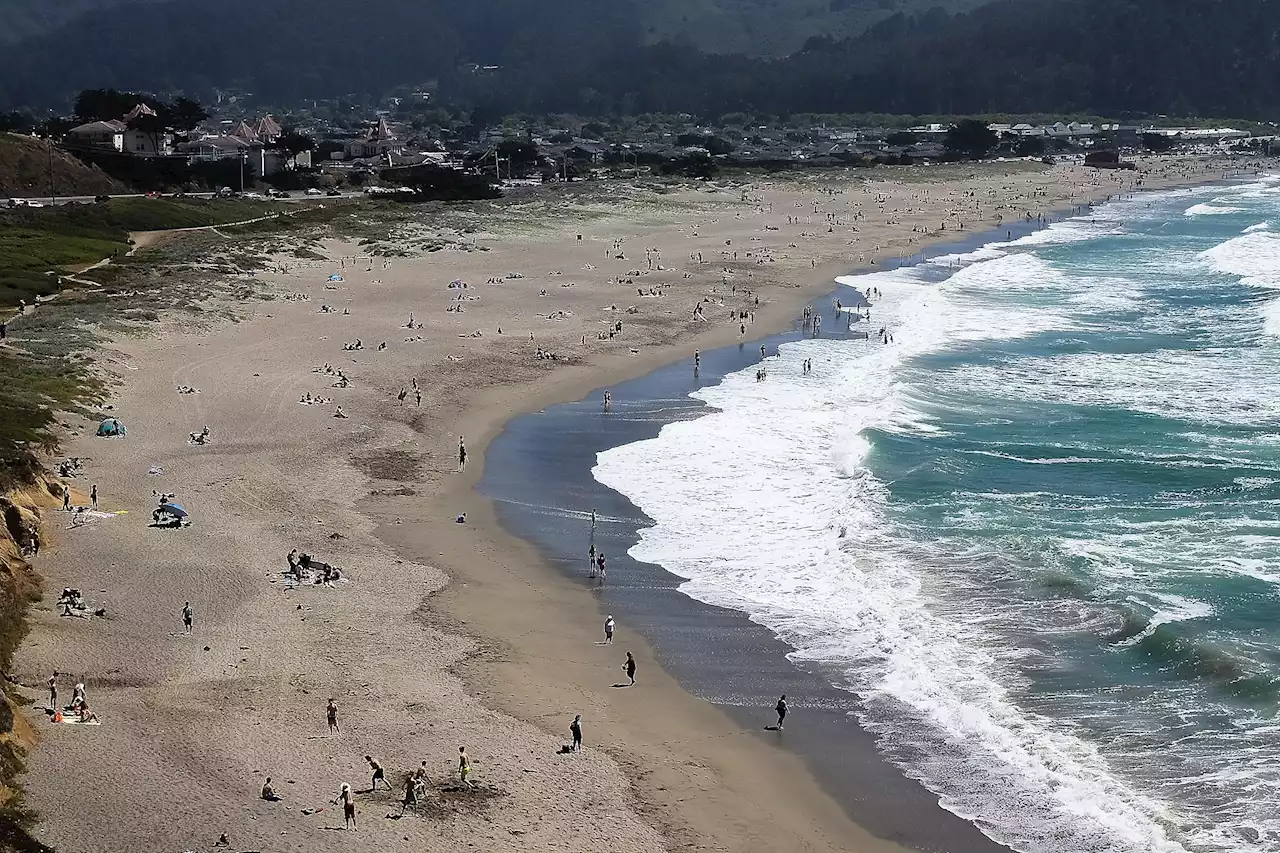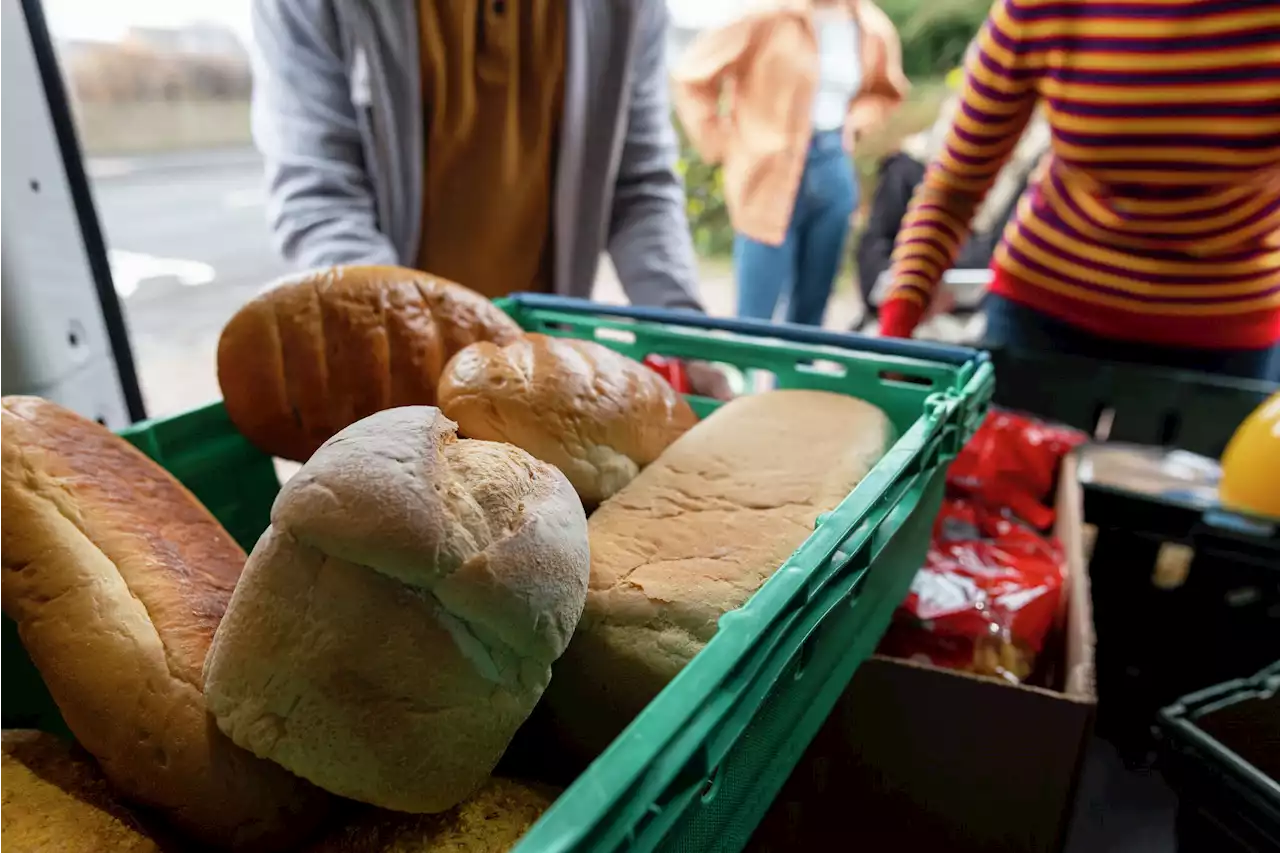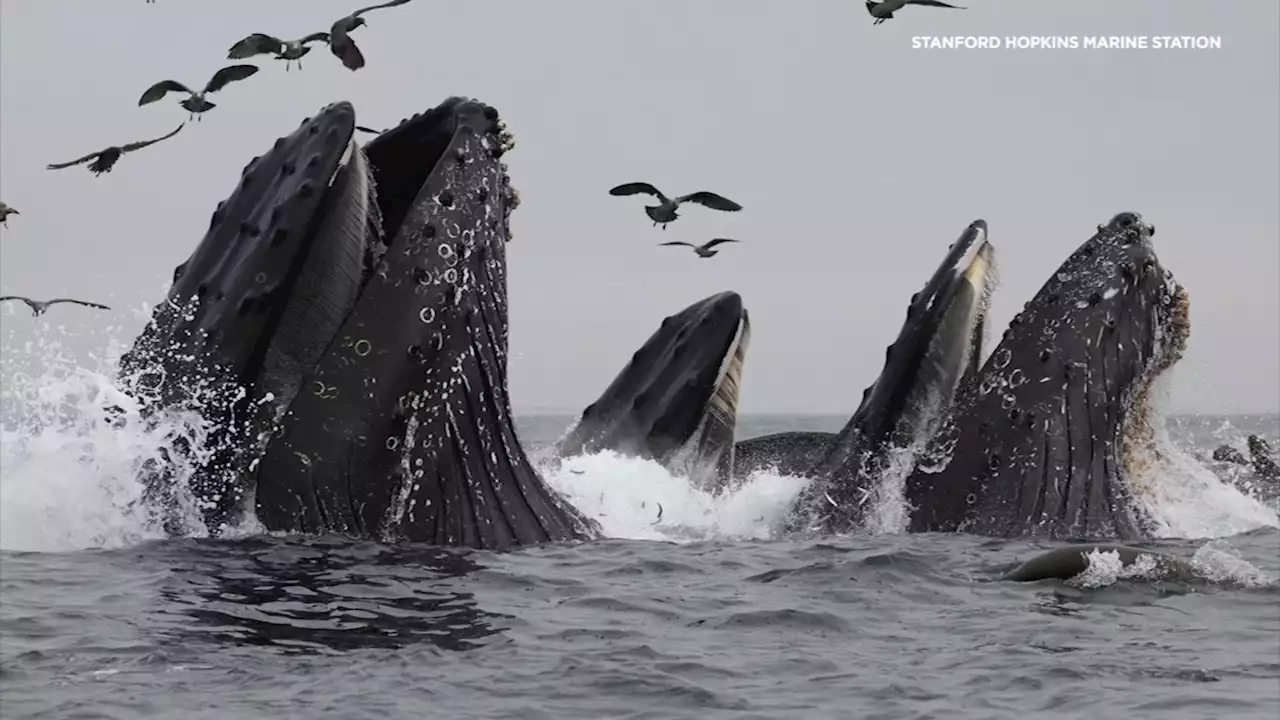Whales migrate past our Bay Area coastline. But now a team from Stanford's Hopkins Marine Station is raising concern about a possible threat to their food chain from microplastics
Savoca and Stanford colleagues, including Shirel Kahane-Rapport, Ph.D., set out to track where the whales feed and the food they're eating. But first, it helps to understand that microplastics can flush though the San Francisco Bay and other urban areas in high concentrations, originating from items many of us might be wearing right now.
The Stanford team used multiple methods to track the whales, including non-invasive tags, backed up with aerial drones and a host of monitoring equipment. "It's an echo sounder," Kahane-Rapport explained. "So basically, it's these big orange porcelain discs."She says the echo-sounder pings the water with a bouncing signal. The readings are ultimately decoded with software sophisticated enough to identify the presence of tiny sea creatures like krill.
United States Latest News, United States Headlines
Similar News:You can also read news stories similar to this one that we have collected from other news sources.
 Bay Area Residents Resume Halloween Celebrations After COVID PauseAfter the pandemic put a damper on Halloween celebrations these past two years, some are making up for it by going big this year.
Bay Area Residents Resume Halloween Celebrations After COVID PauseAfter the pandemic put a damper on Halloween celebrations these past two years, some are making up for it by going big this year.
Read more »
 Waves up to 19 feet tall to pound SF Bay Area beachesHuge waves are expected to create dangerous conditions at Bay Area beaches on Monday.
Waves up to 19 feet tall to pound SF Bay Area beachesHuge waves are expected to create dangerous conditions at Bay Area beaches on Monday.
Read more »
 Bay Area city to ban all new gas stationsThe city currently has 12 gas stations.
Bay Area city to ban all new gas stationsThe city currently has 12 gas stations.
Read more »
 Tom Hanks' surprise 'SNL' cameo has a subtle Bay Area shout-outThe actor's surprise 'SNL' appearance also happened to include an unexpected nod to his Bay Area roots.
Tom Hanks' surprise 'SNL' cameo has a subtle Bay Area shout-outThe actor's surprise 'SNL' appearance also happened to include an unexpected nod to his Bay Area roots.
Read more »
 'Wants to crush us': Bay Area bakery sued by other bakeryThe bakery is seeking $45,000 in damages.
'Wants to crush us': Bay Area bakery sued by other bakeryThe bakery is seeking $45,000 in damages.
Read more »
 Parts of Bay Area could get half an inch of rain TuesdayA cold front forecast to hit the Bay Area on Tuesday may be a little wetter than expected.
Parts of Bay Area could get half an inch of rain TuesdayA cold front forecast to hit the Bay Area on Tuesday may be a little wetter than expected.
Read more »
